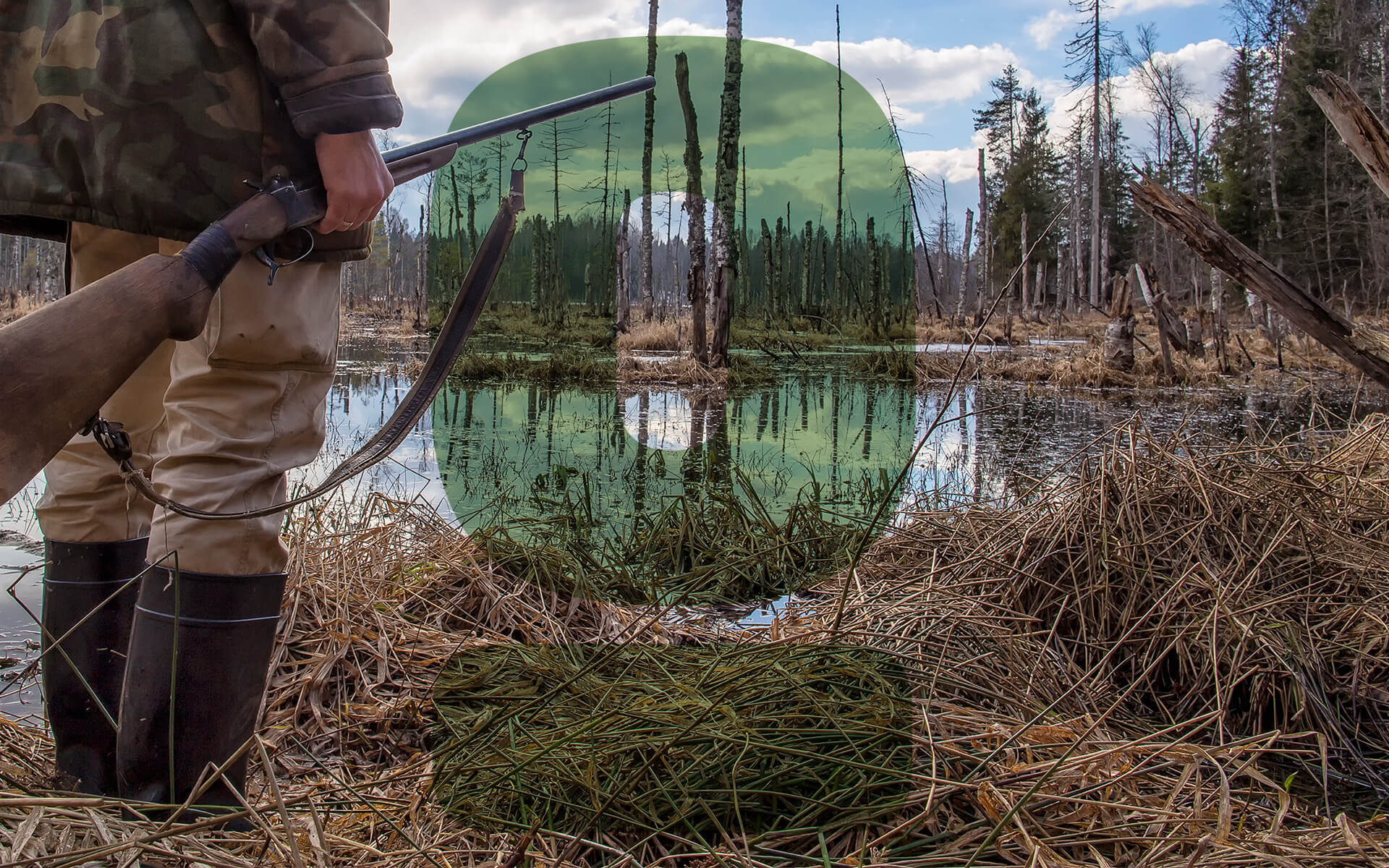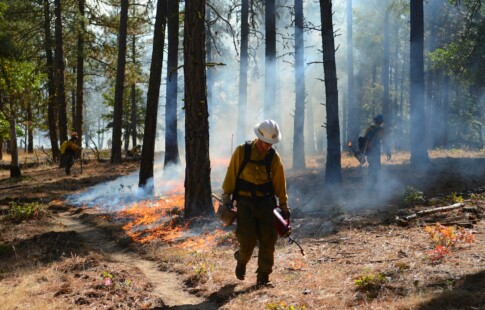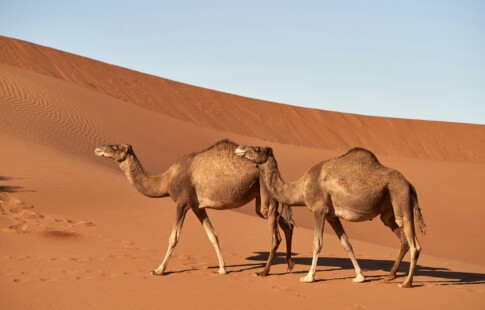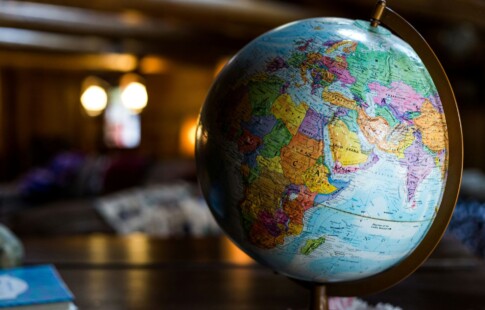
Overhunting Animals: Causes, Effects and Potential Solutions
We are reader-supported. When you buy through links on our site, we may earn affiliate commission.
Humans impact wildlife in numerous ways, but overhunting is one of the most pressing concerns for some species. Global species suffer from people killing animals for fun or economic benefit, which eventually harms humans too. These factors are everything you need to know about the causes and effects of overhunting, plus a few solutions that could mitigate the problem.
What is Overhunting (And What it’s Not)
Overhunting might be used interchangeably with other terms like poaching or even standard hunting. Let’s dive into the details of what these terms mean with example to contextualize discourse:
- Overhunting: Hunting a species excessively or in a way that negative impacts the species overall.
- Poaching: Illegal hunting on land you don’t own or it is protected.
- Trophy hunting: Hunting for sport instead of food, keeping animals or their parts as proof of skill.
- Standard hunting: Capturing or killing animals for food, safety, culling populations, among other reasons.
Some of these terms overlap depending on use. For example, poaching may lead to overhunting, but not all overhunting is poaching. To expand, not all poaching is trophy hunting. Discover more about overhunting specifically and how it affects animals.
What Causes Overhunting?
People need to understand a problem before they can find a solution. These are the reasons why overhunting is an immediate concern for animals on and off the endangered species list.
1. People Hunting for Sport
Using stealth, strategy and technology to find and kill prey is an appealing hobby to many people. Over the centuries, passionate fans created 18 types of hunting sports that involve various weaponry and animals.
The hobby can quickly become an overhunting problem, given that so many people spend their free time that way. Over 13.9 million Americans got hunting licenses in 2021, with many others hunting with or without a license globally. With so many people involved in this sport, endangered animals can easily get caught in their crosshairs.
2. People Hunting for Food
You may think that overhunting doesn’t affect animals that aren’t on the endangered list, but that isn’t true. Many people still hunt for their daily meals or the occasional dinner. When they hunt in areas with a limited number of animals like dear, bears and fish, it hurts those species.
For example, overfishing is a massive concern impacting everything from salmon to sturgeons. These species repopulate at varying speeds, but at some point, they cannot keep up with how much humans are taking from them.
This isn’t a problem in every culture, but some societies may live by species that need more support to reproduce. If those species are also a group’s primary food source, it can lead to complicated overhunting problems at risk of leaving people underfed.
3. People Hunting for Economic Benefit
Legal hunting creates jobs and stimulates the economy, even at the price of significantly reducing species. Hunting may occur because an invasive species has arrived, there is a quickly spreading illness impacting a species, or there is an overpopulation concern.
Illegal wildlife trading is also profitable. The United Nations estimated that illegally hunting ivory tusks on elephants, walruses and hippos make over $23 billion per year. Even though it is illegal in most places, it is still wildly lucrative. Much of that trading results in animals dying for their most profitable parts.
4. People Relaxing Animal Protection Laws
Animal conservation laws become relaxed if they aren’t renewed or strengthened. Enforcement is also an issue. Hunters in remote locations can hunt endangered animals like the arctic fox to skin and sell their pelts for a higher profit than other fox species. It isn’t a leading societal issue, so the laws keeping these problems from getting solved can go unnoticed when they lapse.
Despite these remote locations seemingly having no effect on the world at large, you never know how the downfall of a local species could have a ripple effect through the rest of the animal kingdom.
How Does Overhunting Affect Animals and the Ecosystem?
Everyone can imagine how overhunting prevents animals from replenishing their species each year, but these are a few ways it also hurts the ecosystem.
1. It Disrupts the Food Chain
When one type of animal significantly reduces its population or disappears entirely, it disrupts the food chain. People could overhunt an animal that isn’t on the endangered list, like prairie dogs. When their population got too scarce in 1979, it threatened the black-footed ferret and would have made them extinct without intervention by wildlife experts.
This may not seem like a problem for quickly populating species like rabbits and deer. However, lack of oversight in hunting permissions could lead to these food sources for other animals to fall too severely too.
2. It Interrupts Migration Patterns
There are a few ways that overhunting harms migrating animals. They may change their path if their typical prey no longer exists on their annual migration routes. It could also stop animals from migrating altogether, resulting in a lack of biodiversity that causes other global species to suffer. Migrating animals are essential to the ecosystem, but they can’t follow their instincts if there isn’t food to support them along the way.
3. It Affects Nonendangered Animals
Wild animals are dying from human-influenced climate change as wildfires become more frequent due to a lack of precipitation and higher temperatures. The lucky ones who survive environmental disasters still need prey to eat. When they move to new locations to continue their survival, they may not find enough food to thrive because overhunting already took away their primary food source.
4. It Impacts Agriculture
Many wildlife species eat insects as their primary food source, which allows vegetation to thrive. Agricultural industries need natural insect and bug population control to grow crops successfully. If those animals disappear, pests become overabundant and eat crops, making food more scarce for people at grocery stores, farmer’s markets and homesteads.
Potential Solutions to Overhunting Animals
Although the overhunting of animals is heartbreaking, there are ways humans can help fix the problem. These could mitigate the issue and even prevent overhunting from becoming a global concern again.
1. Stricter Hunting Laws
There are hunting laws, treaties and agreements in place in every country. The U.S. also allows the U.S. Fish and Wildlife Service (FWS) to enact regulations and rules when the laws are too vague. Stricter laws would expedite animal protection and provide updates for newly or potentially endangered species.
2. Additional Hunting Law Enforcement
Federal wildlife officials already regulate the laws protecting animals and restricting hunting abilities, but there could be additional enforcement measures to further protect wildlife. Increased enforcement officials in areas sparsely monitored would keep hunters from illegally killing animals just because there’s no one there to witness it.
3. Eliminated Economic Support for Overhunting
Consumer demand drives production. Economic support has a powerful influence over marketplace variety. If people stop buying animal products from endangered species—like ivory, pelts or taxidermied parts—the products would become too cheap to support hunting and distribution expenses.
4. More Funds for Conservation Agencies
Law enforcement officials have legal rights to take action when hunters break conservation laws, but other agencies could also help minimize overhunting issues. The only problem is their funding.
Many non-federal conservation agencies don’t get federal funding, so they rely on donations and merchandise sales to stay financially afloat. If more people supported them or new laws increased the available federal funding, they could do more work to spread the news about endangered species and ways people can help them.
Overhunting Animals Doesn’t Have to Continue
Overhunting animals has many causes and effects on the animal kingdom and everyone on the planet. People need to become aware of how it impacts the environment to better protect themselves and animals who are powerless against legal and illegal sporting.
This post was updated May 23, 2024, to include more updated information.
Share on
Like what you read? Join other Environment.co readers!
Get the latest updates on our planet by subscribing to the Environment.co newsletter!
About the author

Jane Marsh
Starting from an early age, Jane Marsh loved all animals and became a budding environmentalist. Now, Jane works as the Editor-in-Chief of Environment.co where she covers topics related to climate policy, renewable energy, the food industry, and more.





